The past few weeks I came across these prohibitory signs in Amsterdam.
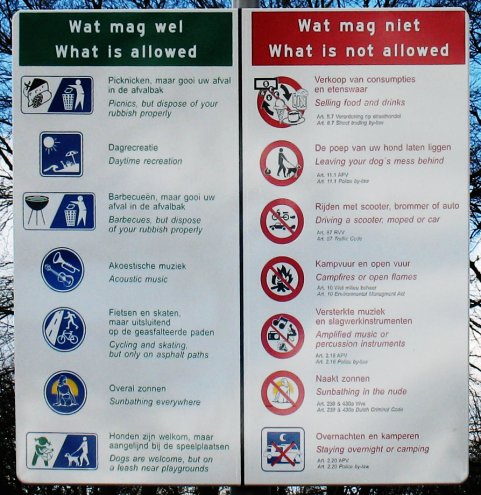
More and more people seem to think that anything that is not explicitly allowed (by whatever nebulous authority) must therefore be forbidden. This sign posted at the entrance of the Vondelpark in Amsterdam seems to pander to that strange sentiment. It starts with a list of things you are allowed to do. Now I can imagine that people wonder about barbecuing—open fires can be dangerous, and assuming that they are forbidden is not much of a stretch. But “acoustic music” and “daytime recreation”? Why, thank you mysterious authority!
That’s not the whole story though. The rules and regulations of this particular park became international news a month or so ago when they were reviewed by the local council. Patrons were interviewed to find out what kind of behaviours they liked and disliked, and it turned out that people hate free-roaming dogs, but don’t mind gays cruising the Rosarium and consuming their short-lived relationships in situ. The latter had of course always been tolerated in grand Dutch tradition. A little task for our readers: add a line to the sign displayed above that allows for steaming hot gay sex, but forbids tepid mushy straight sex. The winner will receive my heart-felt compliments.
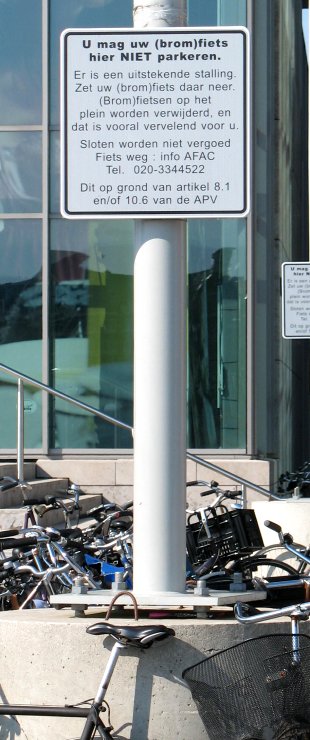
Asking patrons what they like and grand Dutch traditions are almost certainly not what was on the minds of the architects behind the new central public library of Amsterdam. An imposing building at a grand square with steps leading up to the majestic entrance, the obligatory ramp for the wheelchair-bound worked away behind a broad pillar. You cannot have people use such a space any way they like. Somehow, the architects managed to realize that the Dutch won’t give up their bikes though, and designed an underground parking garage for bicycles. They originally limited signage to a parking sign for cars with a drawing of a bike beneath it, neatly out of the way from the square itself.
And then they had to plaster the entire square with these huge signs that point out that there is an underground parking somewhere. Amsterdammers like to bike right up to the entrance, and park within only a few meters distance of the building where they need to be. “There is an excellent parking,” the sign starts. Why not go the whole hog and begin the sign with “there is an excellent sign somewhere near here that points to the excellent parking”? Oh, the snarkiness of these signs: “Bikes will be removed from the square, and that’s an annoyance mostly for you.”
None of these problems would occur with the old library, which had no delusions of grandeur, was cramped or cosy depending on your point of view, and had bike racks no more than a few feet away from its tiny front door.
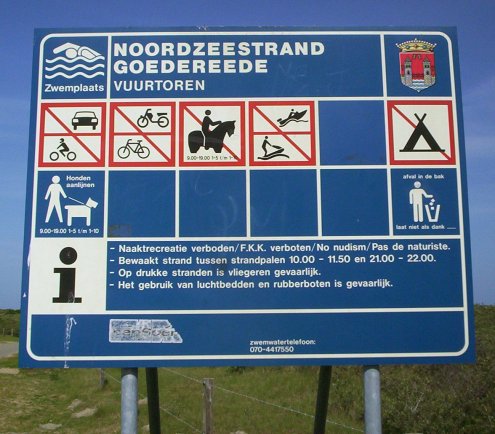
This final sign comes from the town of Goedereede on the island of Goeree-Overflakkee near Rotterdam. Not really mine, and not really “in Amsterdam,” but I felt it deserved a mention nevertheless. The good people of “Good Harbour” had the foresight to leave room for at least five more prohibitions. Last photo by David van der Mark, distributed under a Creative Commons Attribution-Share Alike 2.0 Generic license.







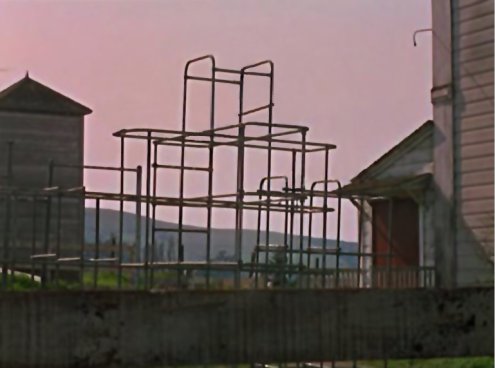
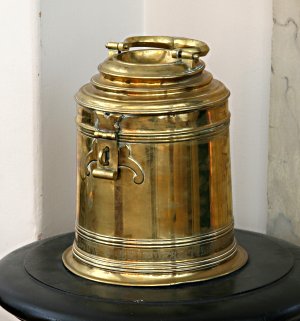 Poor people give more to charity than rich people … relatively speaking. According to
Poor people give more to charity than rich people … relatively speaking. According to  Copyright is not fit for this digital age, and needs to be changed, so say two representatives of the Dutch national library in a letter to daily NRC yesterday. In
Copyright is not fit for this digital age, and needs to be changed, so say two representatives of the Dutch national library in a letter to daily NRC yesterday. In 
![[Visualisation of the new city]](https://www.24oranges.nl/wp-content/uploads/2008/04/waterstad-brihgt.jpg)
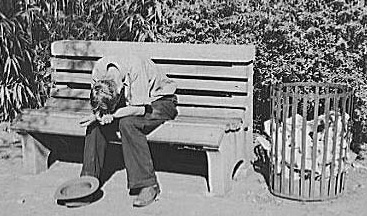
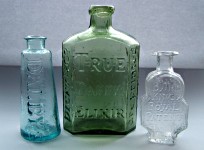 Last Wednesday a trio of judges held that quacks are responsible for their diagnoses, and can therefore be prosecuted when something goes wrong. The case was brought by the Vereniging tegen de Kwakzalverij (Association against Quackery) and the Stichting Skepsis (Skepsis Foundation) against the public prosecutor, after the latter had decided to drop prosecution against two “alternative” physicians and “faith healer” Jomanda. The alternative healers had been accused of leading comedian
Last Wednesday a trio of judges held that quacks are responsible for their diagnoses, and can therefore be prosecuted when something goes wrong. The case was brought by the Vereniging tegen de Kwakzalverij (Association against Quackery) and the Stichting Skepsis (Skepsis Foundation) against the public prosecutor, after the latter had decided to drop prosecution against two “alternative” physicians and “faith healer” Jomanda. The alternative healers had been accused of leading comedian